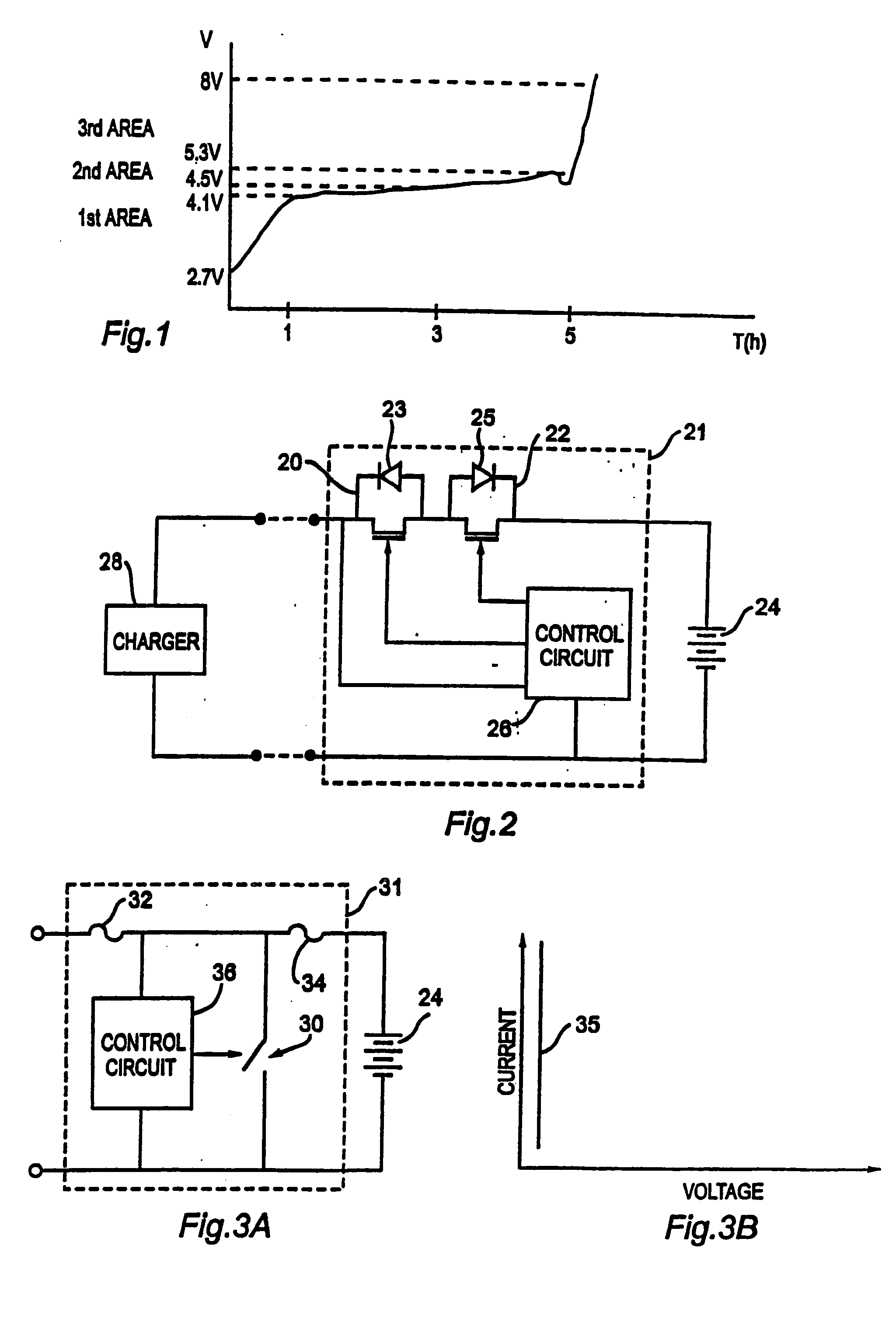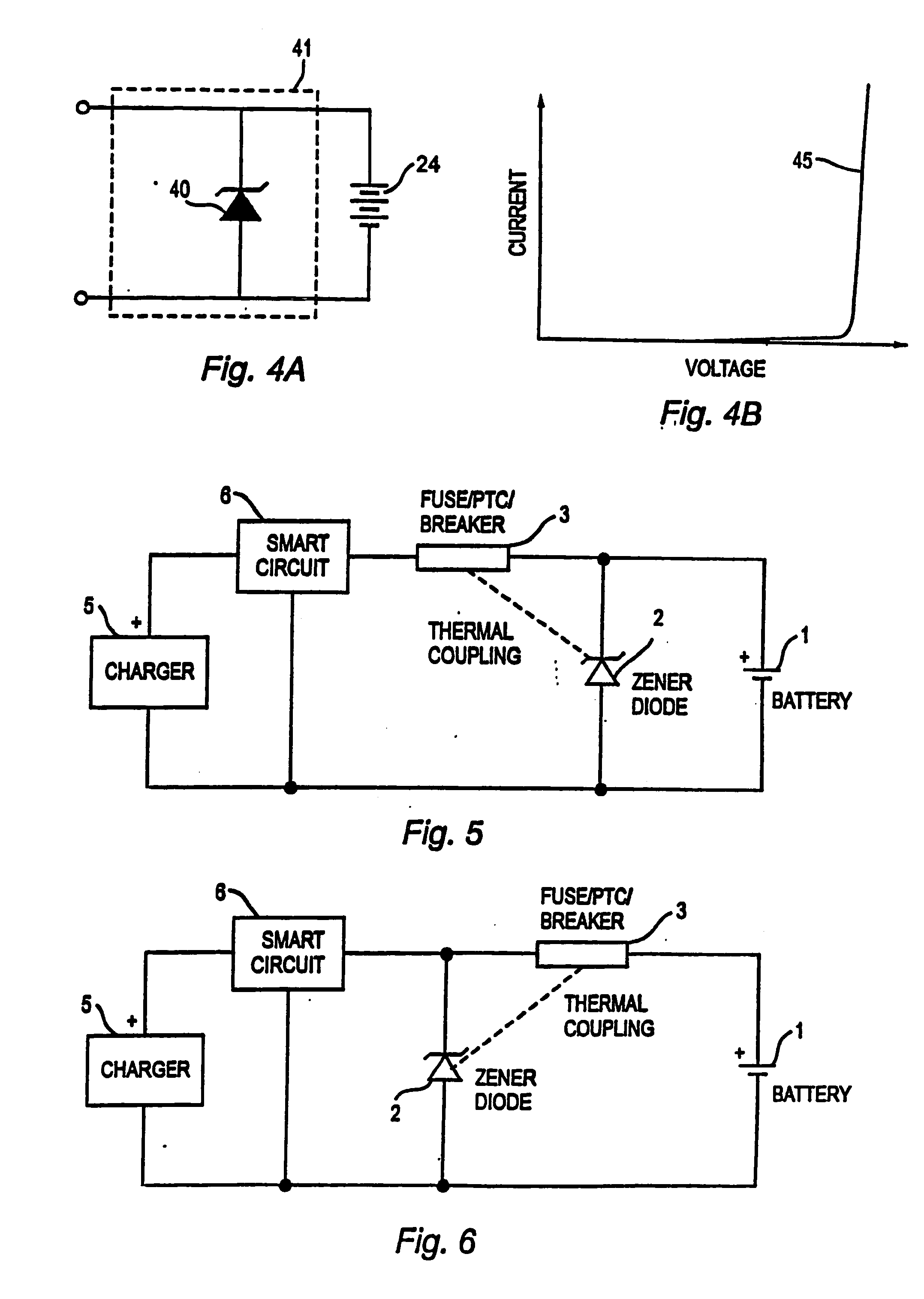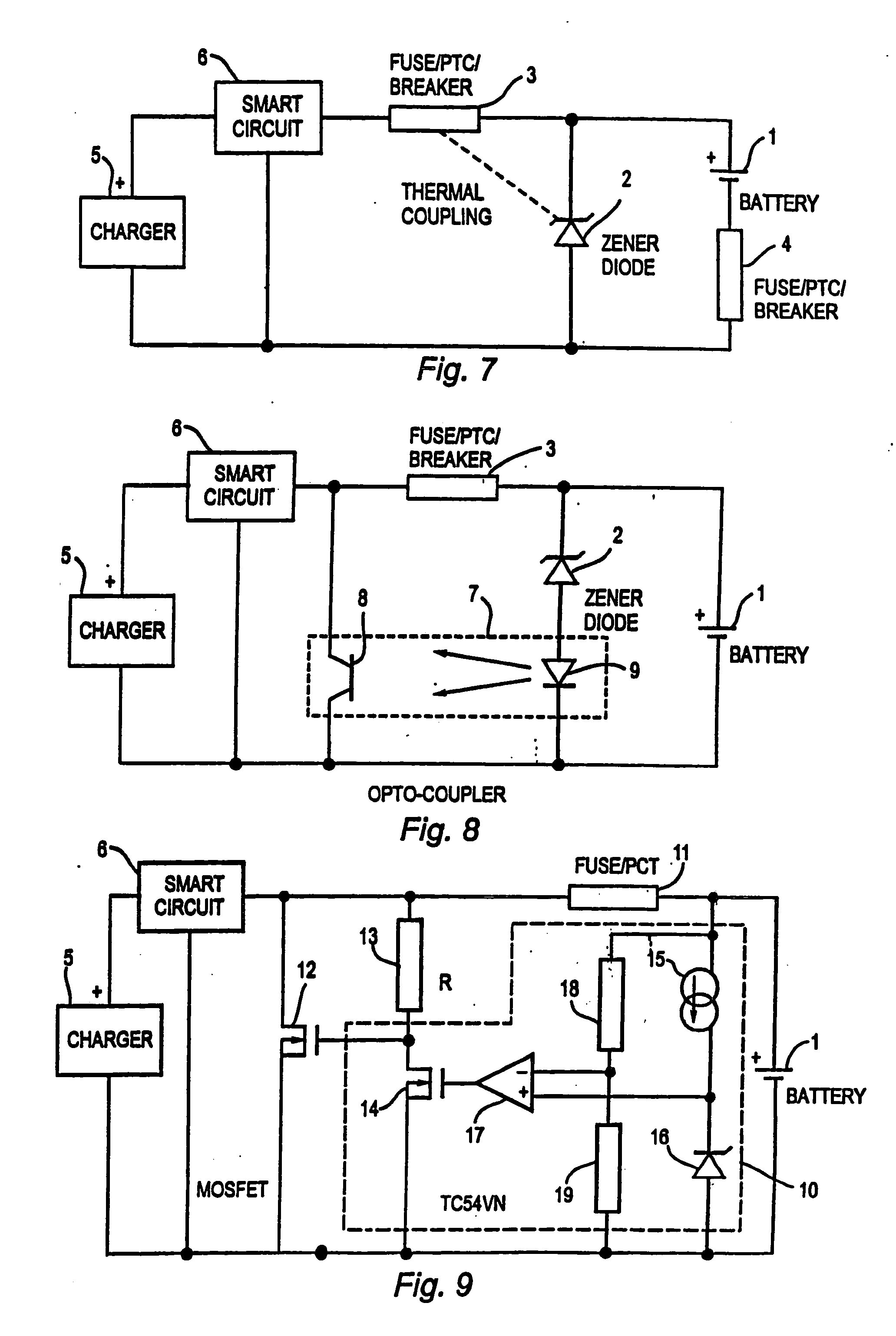Devices and methods for protection of rechargeable elements
a rechargeable element and device technology, applied in the direction of battery overheat protection, safety/protection circuit, secondary cell servicing/maintenance, etc., can solve the problems of dangerous battery operation, battery explosion, and dangerous rechargeable element operation, and achieve effective clamping of the activation gate voltage, low leakage
- Summary
- Abstract
- Description
- Claims
- Application Information
AI Technical Summary
Benefits of technology
Problems solved by technology
Method used
Image
Examples
embodiment 37
[0104] As will be apparent to those skilled in the art, the PTC device 38 may equally be deployed in the ground path of the battery charging circuit, as shown in the alternate protection circuit embodiment 37′ of FIG. 13. As is explained in greater detail herein, a design choice between embodiments 37 and 37′ will hinge on how the thermal link 48 between the PTC device 38 and regulator 39 is physically manifested.
[0105] In either embodiment 37 or 37′, the PTC device 38 also serves to protect against an overcurrent caused by a sudden charging or discharging of the battery cell(s) 24. In particular, should there be a sudden rise in the current, the PTC device 38 will experience rapid ohmic heating from the sudden surge in dissipated power, until it trips and substantially chokes back on the current.
[0106] Importantly, in order to provide for efficient charging and discharging of the battery cell(s) 24, the in-series resistance of the PTC device 38 and leakage of the regulator device ...
embodiment 340
[0218]FIGS. 57-58 depict an alternate preferred embodiment 340 of the above-described three terminal protection device 240. Like protection device 240, protection device 340 includes a PTC chip 342, which is thermally and electrically coupled to a MOSFET regulator 344. The PTC chip 342 includes a layer of PTC material 346 having a first metal electrode layer 348 covering a first side, and a second metal electrode layer 350 covering a second (i.e., opposite) side. The metal electrode layers 348 and 350 are respectively coated with an insulating film 349 and 351.
[0219] As in device 240, a portion of the insulating film 351 is missing at one end of the PTC chip 342, exposing a portion of the metal electrode layer 350, which forms a first terminal 341 of the protection package 340. Unlike in device 240, a portion of the insulating film 351 is also missing at the other end of the PTC chip 342, exposing a portion of a via 363 of metal electrode layer 348, which forms a second terminal 361...
PUM
| Property | Measurement | Unit |
|---|---|---|
| voltage | aaaaa | aaaaa |
| pressure | aaaaa | aaaaa |
| temperature | aaaaa | aaaaa |
Abstract
Description
Claims
Application Information
 Login to View More
Login to View More - R&D
- Intellectual Property
- Life Sciences
- Materials
- Tech Scout
- Unparalleled Data Quality
- Higher Quality Content
- 60% Fewer Hallucinations
Browse by: Latest US Patents, China's latest patents, Technical Efficacy Thesaurus, Application Domain, Technology Topic, Popular Technical Reports.
© 2025 PatSnap. All rights reserved.Legal|Privacy policy|Modern Slavery Act Transparency Statement|Sitemap|About US| Contact US: help@patsnap.com



